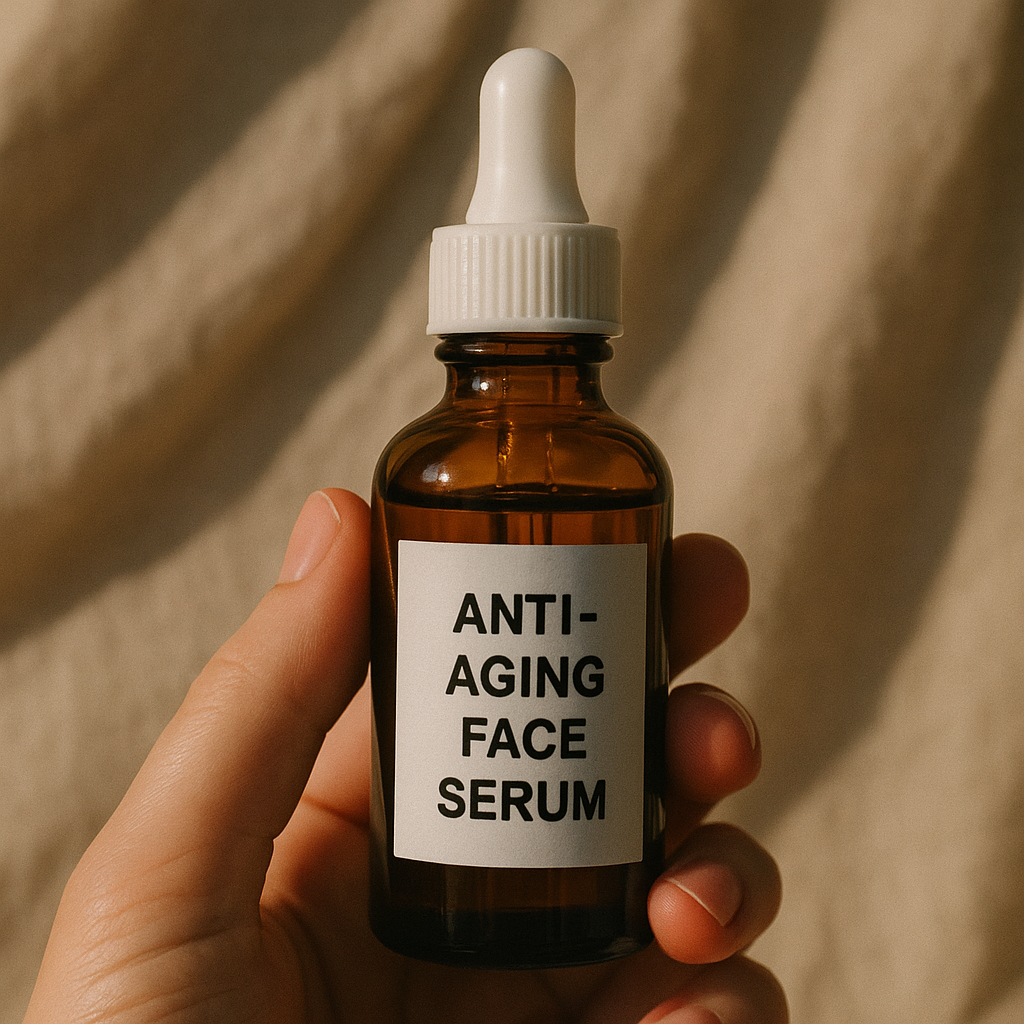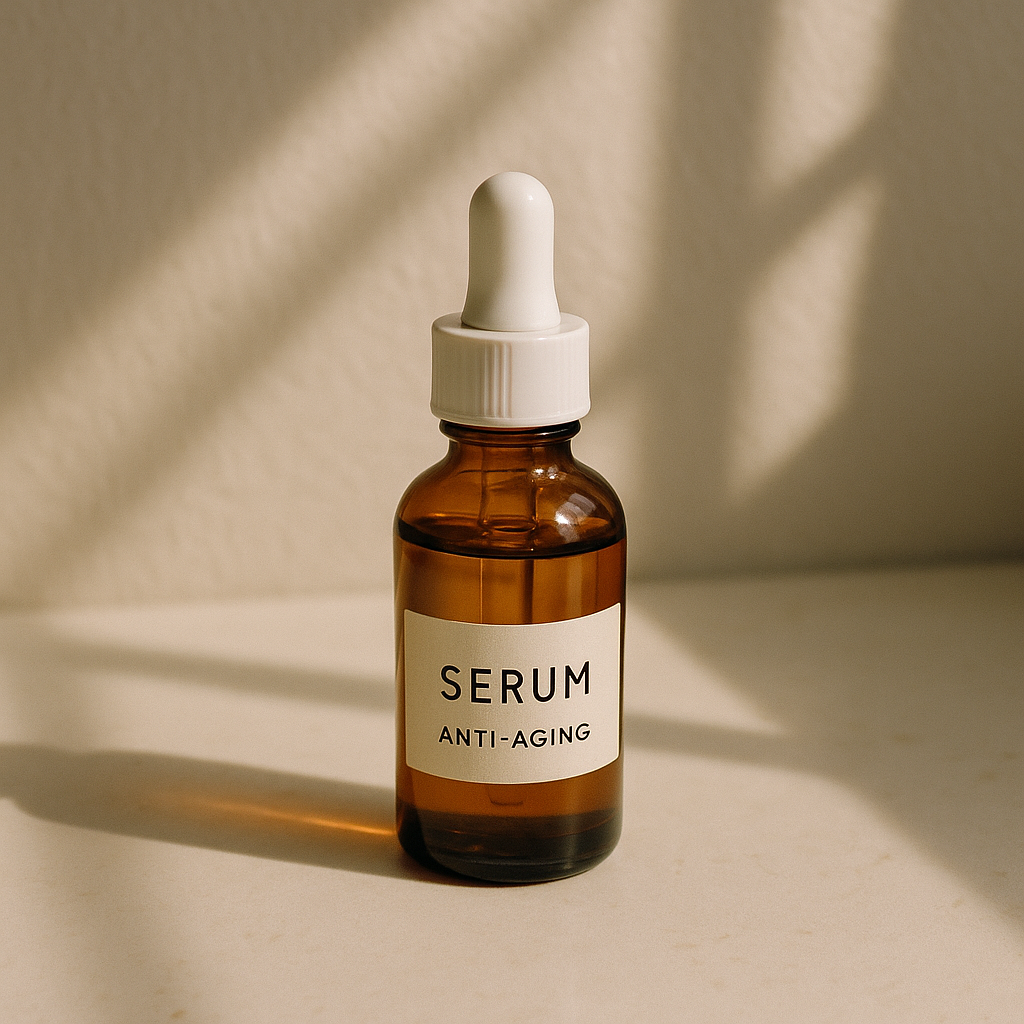Ask Ayurvedic doctor a question and get a consultation online on the problem of your concern in a free or paid mode. More than 2,000 experienced doctors work and wait for your questions on our site and help users to solve their health problems every day.
Which Serum Is Best for Anti-Aging?

If you’ve ever stood in front of a mirror wondering when those fine lines showed up or why your skin doesn’t quite bounce back like it used to—welcome to the club. Aging is natural, but that doesn’t mean we can’t take a few smart steps to slow it down a bit. One of the most powerful tools in the skincare toolbox is an anti aging serum. But here’s the kicker: not all serums are created equal. The question on everyone’s mind lately is — which serum is best for anti aging?
In this guide, we’ll break down the science (but in plain English, promise), explore the best anti aging serum for different skin types, and uncover why ingredients like Vitamin C and Ayurvedic herbs are more than just trendy buzzwords. Let’s dive into the world of anti aging serums and find the one that’s right for your unique skin.
What Is an Anti Aging Serum and How It Works
An anti aging serum is basically a skincare superhero in a bottle. Unlike thicker creams or moisturizers, serums are lightweight and contain a higher concentration of active ingredients that penetrate deeper into the skin. That means they work faster and more effectively—if you pick the right one, of course.
Most anti aging serums target signs of aging like wrinkles, sagging, dullness, and uneven tone. They typically include ingredients like retinol, hyaluronic acid, peptides, and antioxidants. Some even go a step further with brightening agents or exfoliants that help speed up cell turnover. The best part? You don’t have to wait for results forever. Many people see visible improvement in just a few weeks.
But beware of flashy labels and over-hyped claims. It’s easy to get lost in the beauty aisle jungle. That’s why it’s crucial to understand your skin’s needs before choosing the best serum for anti aging.

Don't wait or self medicate. Start chat with Doctor NOW
Best Anti Aging Face Serums for Different Skin Types
Finding the best anti aging serum isn’t just about picking the one with the fanciest packaging. Your skin type plays a huge role in how a serum works—or doesn’t work—for you.
Anti Aging Serum for Dry Skin
If your skin feels tight, flaky, or dull, chances are it’s craving moisture. Dry skin tends to age faster, partly because it's more prone to fine lines and lacks the natural oils that keep it soft and resilient.
Look for an anti aging serum for dry skin that contains hydrating powerhouses like hyaluronic acid, glycerin, and ceramides. Bonus points if it includes nourishing oils or calming botanicals like chamomile or rosehip seed oil.
Pro tip (and this might sound obvious but still worth saying): always apply your serum on damp skin. It helps lock in moisture and boosts absorption.
Anti Aging Serum for Oily Skin
Now, oily skin types—don’t think you’re off the hook. While it might be true that oily skin shows wrinkles a bit later, it’s still at risk for aging signs like uneven tone and enlarged pores.
An ideal anti aging serum for oily skin should be lightweight and non-comedogenic (aka it won't clog your pores). Ingredients like niacinamide, green tea extract, and salicylic acid work wonders for keeping oil in check while also fighting off early signs of aging.
Stay away from anything too heavy or oil-based—it'll just make you look shinier than you probably want to be. Trust me, made that mistake twice.

Ayurvedic Ingredients in Anti Aging Serums
The beauty industry is finally catching on to something Ayurveda has known for centuries—nature knows best. Ayurvedic ingredients are making waves in the world of anti aging face serums, and for good reason. They’re packed with antioxidants, vitamins, and other bioactive compounds that nourish the skin deeply, often without the harsh side effects of synthetic actives.
Take Ashwagandha, for instance. This adaptogenic herb helps combat stress—which, spoiler alert—shows up on your face too. It also boosts collagen production and improves skin elasticity. Then there's Gotu Kola, an herb that stimulates fibroblast cells and helps repair damaged skin tissue. Not to mention Turmeric, a powerful anti-inflammatory that brightens and evens out skin tone.
Many new formulations that claim to be the best serum for aging skin are now blending these ancient herbs with modern science. It's the best of both worlds, really. Just be sure to check the ingredient list carefully. Some products throw in a pinch of turmeric and call it “Ayurvedic.” Nah, don’t fall for that. Look for serums with a proper blend of multiple herbs in meaningful concentrations.
Benefits of Using Vitamin C and Herbal Serums
Let’s talk about a crowd favorite: anti aging vitamin C serum. This one’s become a skincare staple for a reason. Vitamin C is a potent antioxidant that fights off free radicals—those nasty molecules that speed up skin aging. But that’s not all it does. It also fades dark spots, brightens your complexion, and even helps boost collagen.
Pair Vitamin C with Ayurvedic herbs? You’ve got yourself a multitasking powerhouse. A face serum for anti aging that contains Vitamin C and herbs like Licorice Root or Amla (Indian Gooseberry) can really transform dull, tired skin.
But, here’s a quick caution: not all Vitamin C serums are created equal. Some oxidize quickly and become ineffective. Choose a serum in a dark glass bottle (this protects the contents from light damage) and store it in a cool, dry place. Don’t be like me and leave it on the window sill… it didn’t end well 😅.
How to Choose the Best Serum for Aging Skin
Okay, so now that you know all these amazing ingredients and what they do—how do you actually choose the best serum for aging skin?
-
Know Your Skin Type
Dry, oily, combo, sensitive—each needs a different kind of care. Like we covered earlier, the best anti aging serum for dry skin should hydrate deeply, while the anti aging serum for oily skin needs to be light and balancing. -
Check the Ingredient List
Look for proven actives like retinol, Vitamin C, niacinamide, peptides, and Ayurvedic herbs. Avoid heavy fragrances or alcohols that can dry or irritate your skin. -
Read Reviews—but Be Skeptical
A lot of them are sponsored or overly enthusiastic. Real reviews often mention both pros and cons, and that’s what you want to look for. -
Start Slow and Patch Test
Don’t slap it all over your face on day one. Always test it on a small area first. Trust me, your skin will thank you. -
Consistency Over Quantity
Even the best anti aging serum won’t work if it’s used once a week. Stick with it, make it part of your routine. Results show up over time, not overnight.
Conclusion
When it comes to fighting the signs of aging, there’s no one-size-fits-all magic potion (would be nice, right?). But what you can do is make smart choices based on your unique skin type, concerns, and goals. Whether you’re looking for the best anti aging serum to smooth out fine lines or want a herbal anti aging face serum that keeps your skin radiant and calm, there’s a perfect match out there—you just need to look a little closer at the label.
From understanding whether your skin needs a moisture-boosting anti aging serum for dry skin, or a balancing anti aging serum for oily skin, to discovering powerful Ayurvedic ingredients and proven favorites like anti aging vitamin C serum, it all starts with knowledge. And consistency. And patience. (Did I mention patience?)
So next time someone asks, “Which serum is best for anti aging?”—you’ll know it’s not just about a brand name or influencer hype. It’s about what works for you.
And don’t forget—aging isn’t a flaw. It’s just life doing its thing. Serums just help us age gracefully. 😉
FAQs
Which serum is best after 35 years of age?
Great question. Once you're in your mid-30s, your skin’s natural collagen production begins to slow down. That’s when you want to invest in a face serum for anti aging that includes ingredients like retinol (for boosting cell turnover), peptides (for collagen production), and Vitamin C (for brightening and protection). If you’re looking for the best serum for aging skin after 35, go for something hydrating and rich in antioxidants—your skin will thank you later.
Is hyaluronic acid anti-aging?
Yes, absolutely. Hyaluronic acid might not sound glamorous, but it’s one of the most effective hydration agents out there. It plumps the skin, reducing the appearance of fine lines and giving your face a smoother, more youthful look. While it doesn’t “reverse” aging, it definitely makes aging a whole lot more flattering. Many anti aging serums—especially those targeting dry skin—include this ingredient for a reason.
Is Vitamin C good for aging skin?
Yes! Anti aging vitamin C serum is a superstar. Not only does it help reduce the look of wrinkles, but it also fades pigmentation and brightens dull skin. It works by neutralizing free radicals (a major cause of skin aging) and supporting your skin’s natural regeneration process. Use it in the morning for a glowy, protected finish before you head out for the day.
What’s the difference between anti aging serum and face cream?
This one trips people up all the time. A serum is more concentrated—it’s the treatment part of your routine. Creams are thicker and more about sealing in moisture. Think of the anti aging serum as the action hero and the face cream as its trusty sidekick. For best results? Use both. Apply the serum first, let it absorb, then lock it in with your cream.
Final Thought
No matter where you are in your skincare journey, it’s never too late (or too early) to start caring for your skin in a more intentional way. Choosing the best serum for anti aging doesn’t have to be confusing—it’s about knowing what works for your skin and sticking with it.
👩🔬 Explore different serums, test what works for you, and share your results. You might just help a friend find their perfect anti-aging match too.
And hey—if you found this helpful, go ahead and share it. Someone in your circle is probably asking, “Which serum is best for anti aging?” right now.

